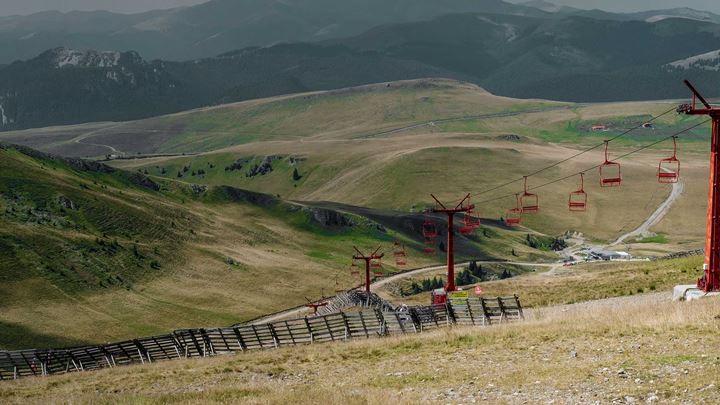Articles
-
Investment Trust ratings 2024: Who's in and who's out?
Investment Trust ratings 2024: Who's in and who's out?
Following on from Kepler’s recent announcement of their 2024 Investment Trust ratings,
Author: -
Investment Trust Ratings 2024
Investment Trust Ratings 2024
We reveal the winners of our Investment Trust Ratings for 2024…by Thomas McMahon
Author: -
Lockdown changed the world, and now ethical investing will too
Lockdown changed the world, and now ethical investing will too
Ethical and environmental considerations in our daily lives have been thrown into sharp relief by the coronavirus crisis
Author:
-
What is ESG and why does it matter to my investments?
What is ESG and why does it matter to my investments?
“ESG” sounds like something very technical and jargon-y.
Author: -
What you need to know about impact investing
What you need to know about impact investing
Impact investing (so-called because the stocks and funds on offer have a positive impact on society, or the environment, or both) is fast gaining followers, not just for its morally virtuous stance, but also for its returns.
Author: -
Going green
Going green
Making money and protecting the environment are not mutually exclusive. You can actually enjoy excellent returns while helping to safeguard the planet.
Author:
-
How to prepare your portfolio for a recession
How to prepare your portfolio for a recession
Ways to prepare your portfolio to mitigate some of the worst effects of a recession.
Author: -
Market circuit breakers: everything you need to know
Market circuit breakers: everything you need to know
When extreme losses take hold, so-called “circuit breakers” are triggered, particularly in US indices such as the S&P 500. But what are these circuit breakers, and why are they activated?
Author: -
Four tips to protect your portfolio in a bear market
Four tips to protect your portfolio in a bear market
How to react when markets tumble is something of a million-pound question. But there are things you can do, and lessons to be learned when indices turn red.
Author:
-
Which region of the world should I invest in – Asia, Emerging Markets or Global?
Which region of the world should I invest in – Asia, Emerging Markets or Global?
It’s important to remember that different geographic areas offer different advantages for investors, and indeed have different risks.
Author: -
Which region of the world should I invest in – UK, USA, Europe?
Which region of the world should I invest in – UK, USA, Europe?
When you get started with investing, one of the most important considerations is where in the world you want to invest your money. And while there’s no quick answer, different geographic areas of the world offer different advantages, and indeed have different risks, for investors.
Author: -
Is it too late to invest in Asia?
Is it too late to invest in Asia?
Asia is the one global region set for a massive expansion both in economic and population terms – but have investors missed the boat to benefit from this growth? Despite coronavirus fears, the future still looks bright for investing in Asia.
Author:
-
When to review your pension
When to review your pension
Review your pension today to get ahead with your retirement planning
Author: -
Demystifying the confusion around SIPPs
Demystifying the confusion around SIPPs
The chances are you’ve heard of SIPPs – Self Invested Personal Pensions – and maybe you have a good idea how they work. However, lots of people have either never heard of a SIPP or have been put off opening one because they feel they are too complicated or too time consuming to manage.
Author: -
The pensions knowledge gap that could harm your retirement plans
The pensions knowledge gap that could harm your retirement plans
How much do you have in your pension? Do you even know where all your pensions are? And most importantly of all, are you certain you’ll have enough to live on when you retire?
Author:
-
Investing Basics: compound interest
Investing Basics: compound interest
Compound interest is the eighth wonder of the world. He, who understands it, earns it … he who doesn’t … pays it.’ Albert Einstein
Author: -
Investing Basics: Growth or value investing?
Investing Basics: Growth or value investing?
Whatever style an investor adopts, the goal is always to identify and buy an asset in the hope and expectation that its price will increase; whilst the ambition may be simple enough, its achievement may be altogether trickier – how do you judge whether your investments are positioned to get the best possible return? – asks Christian Leeming.
Author: -
Investing basics: Investment Trust sectors
Investing basics: Investment Trust sectors
Investment trusts were once dubbed the ‘best kept secret in the City’; not any more it seems, as investors have embraced the fact that some trusts have consistently increased their dividends over decades, and have done so in the face of enormous headwinds – just one of which is the current COVID-19 pandemic.1 - writes Hannah Barnaby
Author:
-
Will the Lifetime ISA be a lifesaver?
Will the Lifetime ISA be a lifesaver?
Most of us will be aware that first-time buyers are getting older.
Author: -
What’s your ISA fit?
What’s your ISA fit?
ISAs are a fantastic vehicle for long-term savings thanks to generous tax-saving features. When saving into an ISA you don’t pay any tax on the money in your account, or any income tax on the interest you earn. However, there are a few rules you should be aware of when using them.
Author: -
Lifetime ISA: Fast facts
Lifetime ISA: Fast facts
What does LISA stand for? The Lifetime ISA – it’s new. What’s the big appeal? The government will add a 25% bonus to what you invest, up to £1,000 a year on your maximum £4,000 investable allowance until you are 50. Can anyone open a LISA? No, you must be aged 18–39.
Author:
-
When to review your pension
When to review your pension
Review your pension today to get ahead with your retirement planning
Author: -
Demystifying the confusion around SIPPs
Demystifying the confusion around SIPPs
The chances are you’ve heard of SIPPs – Self Invested Personal Pensions – and maybe you have a good idea how they work. However, lots of people have either never heard of a SIPP or have been put off opening one because they feel they are too complicated or too time consuming to manage.
Author: -
What age can I retire
What age can I retire
The question “what age can I retire” is probably one of the biggest you’ll ever ask yourself. It is arguably the most fundamental question of any long-term savings plan, as retirement is normally the ultimate goal toward which most of us save.
Author:
-
What’s your ISA fit?
What’s your ISA fit?
ISAs are a fantastic vehicle for long-term savings thanks to generous tax-saving features. When saving into an ISA you don’t pay any tax on the money in your account, or any income tax on the interest you earn. However, there are a few rules you should be aware of when using them.
Author: -
What to do with your ISA allowance amidst market uncertainty
What to do with your ISA allowance amidst market uncertainty
Now that we are in the new tax year how should you respond? Is now the time to take advantage of market-sell offs or is it best to hold fire?
Author: -
Five things you should do before the end of the tax year
Five things you should do before the end of the tax year
With less than one month to go before the tax year ends on 5 April, there is still time to make the most of your tax allowances before you lose them. Here are five simple tax rules you can take advantage of before 5 April to reduce your tax liability and maximise your savings.
Author:
-
Don’t wait for a stock market crash to plan ahead
Don’t wait for a stock market crash to plan ahead
Increased turbulence on global stock markets has led many market commentators to ruminate on the possibility that the decade plus long bull run will soon come to an end.
Author: -
Investing for income amidst cuts as Centrica slashes prized dividend
Investing for income amidst cuts as Centrica slashes prized dividend
The past few years has been difficult for those who invest for income, with much publicised dividend cuts
Author:
-
Time for yourself
Time for yourself
Looking at why time in the market, rather than timing the market, paid off
Author: -
New Year Resolution
New Year Resolution
Your future self might just thank you
Author: -
Five key things to consider when investing in funds
Five key things to consider when investing in funds
Funds are an excellent starting point for investors as they can remove the need to research dozens of potential investments.
Author:
-
Schroder Income Growth Fund PLC: Navigating a significant capital allocation shift in the UK
Schroder Income Growth Fund PLC: Navigating a significant capital allocation shift in the UK
The increasing popularity of share buybacks in the UK market
Author: -
Investing in a time of unknown unknowns
Investing in a time of unknown unknowns
Financial first footing could see geopolitical upheaval vying with social, economic and environmental crises as the key influences in the year ahead.
Author: -
Digit Digest Podcast: The evolution of REITS and the future of UK Real Estate
Digit Digest Podcast: The evolution of REITS and the future of UK Real Estate
Discussing the evolution of UK Real Estate Investment Trusts (REITs),
Author:




























